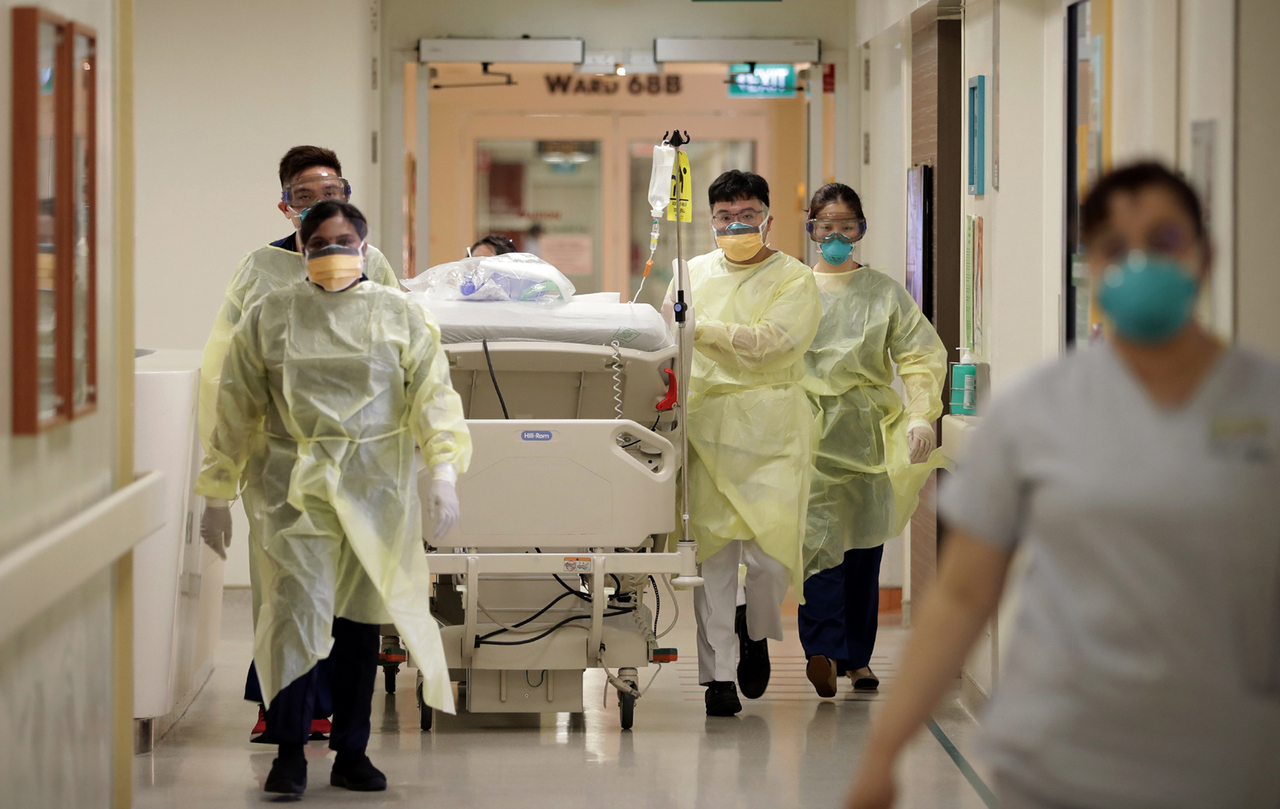Covid-19's long tail: What is it and why does it happen?
Sign up now: Get ST's newsletters delivered to your inbox

Long Covid is a serious concern from a societal perspective.
PHOTO: ST FILE
SINGAPORE - Many who survive Covid-19 find themselves confronted with another challenge - recovering from the "long Covid", which involves residual symptoms such as fatigue and chest pains weeks and months after infection.
The Straits Times delves into why this happens, how prevalent it is and if vaccination will alleviate any of the lingering symptoms.
Q: What is "long Covid" and what do we know about it?
A: It is a condition where some people continue to experience Covid-19 symptoms for longer than usual, even after recovering from the virus.
Fatigue, shortness of breath, chest pain, joint aches and "brain fog" - where one's thinking is sluggish - are some commonly described problems that emerge or linger four weeks or more after an infection.
Long Covid is a serious concern from a societal perspective, adding to the hidden toll of the pandemic years later, said Associate Professor Alex Cook, vice-dean of research at the National University of Singapore's Saw Swee Hock School of Public Health.
It justifies the strong measures taken to cut community transmission since the beginning of the pandemic and to prevent people from being infected in the first place.
The prevalence has been estimated from about one in 10 to one in three cases, though the symptoms are quite diverse and it is difficult to be sure how many people experience these symptoms and for how long, Prof Cook said.
When Prof Cook and his team interviewed recovered foreign workers who lived in dormitories early this year, about 20 per cent of them reported still having side effects. This is more than six months since they were infected, when Singapore was battling outbreaks in workers' dormitories in the middle of last year.
Though data is slowly emerging, researchers have yet to study sufficient numbers of patients over a long duration to gauge the full range of long-term effects.
"There really is a pressing need to study the problem in-depth and to alleviate any residual symptoms," Prof Cook said.
Q: What causes "long Covid" and will vaccination alleviate it?
A: The main reason behind Covid-19's long tail is related to the autoimmune response of the body. When a patient is infected, he may develop an overactive immune response. These long-term side effects might be due to the body attacking itself, an issue which vaccination is unable to resolve.
A large survey of more than 800 people has recently suggested that mRNA vaccines, in particular, are beneficial to alleviating long Covid.
The analysis, which is yet to be peer reviewed, was based on a survey conducted by the advocacy group LongCovidSOS involving 812 people with long Covid in Britain and internationally, The Guardian reported on Tuesday (May 18).
Generally, the survey found that those who received mRNA vaccines, such as the Pfizer-BioNTech and Moderna jabs, reported greater improvements in symptoms than those who received an adenovirus vaccine, such as the AstraZeneca-Oxford jab.
Researchers say more data and time are needed to get a full understanding of what happens in the long term when a vaccinated person is infected but only displays mild symptoms.
Q: Do other viruses also have similar effects?
A: Yes, it can happen, such as for certain viral infections like the common cold, influenza, HIV, measles and hepatitis B. A Canadian study identified 21 healthcare workers from Toronto who had post-viral symptoms for as long as three years after being infected by the severe acute respiratory syndrome (Sars) in 2003 and were unable to return to their usual work.
Some people who were hospitalised with Sars in Hong Kong still had impaired lung function two years later, a study published in medical journal Respirology of 55 patients published in 2010 found.
But it remains unclear whether this finding can be translated into what we know of Covid-19.


